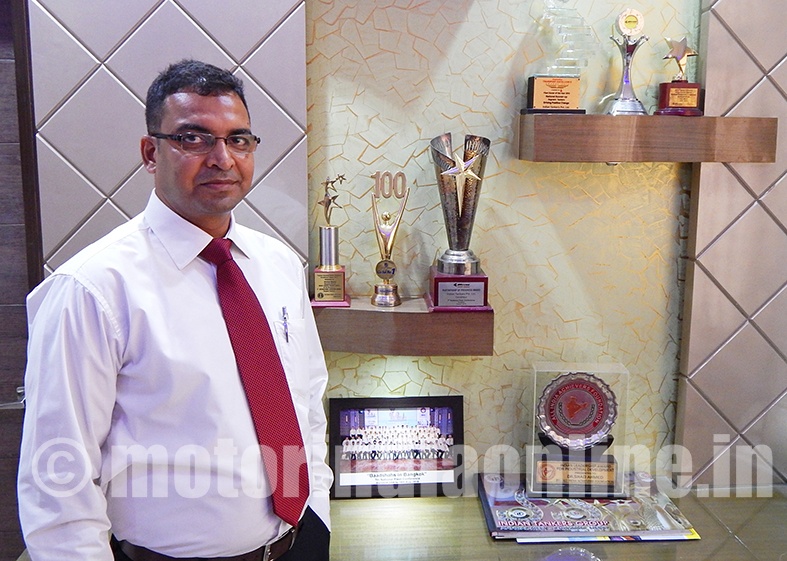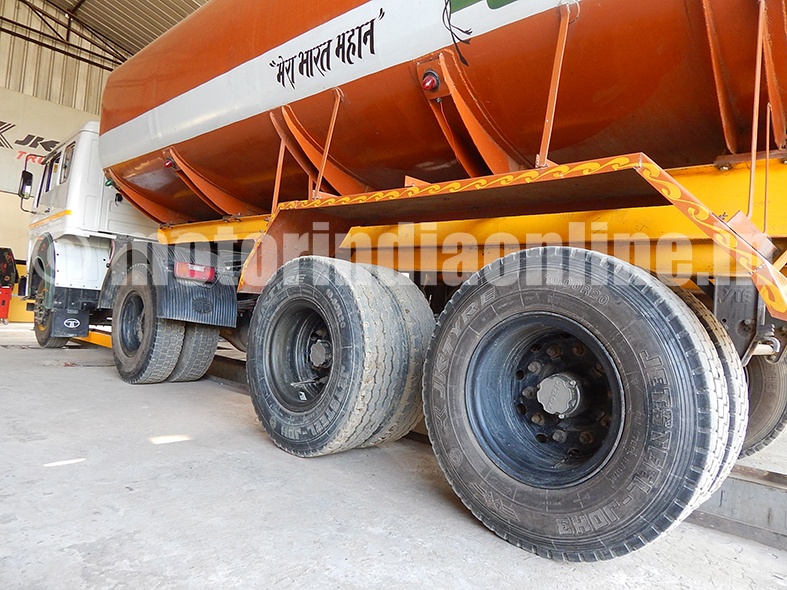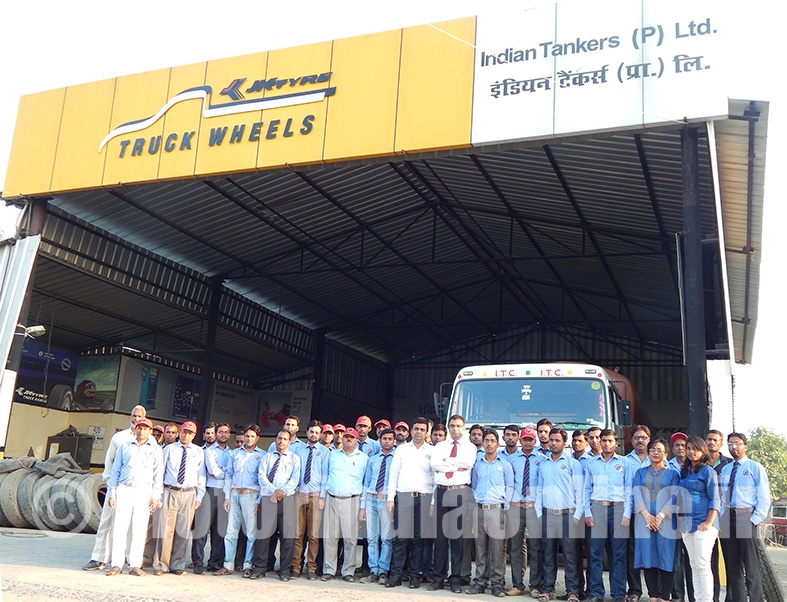After meeting the most sought-after fleets hand-held by JK Tyre for nearly two years, we went to Gorakhpur, Uttar Pradesh to gain insights from a leading transport service provider ‘Indian Tankers (Pvt.) Ltd’. As the name suggests, the company is solely into tanker transportation business with vehicles operating in the 25, 37, 40, 49-tonne segments.

Established in 1978 under the visionary guidance of Mr. Nisar Ahmed, the company runs a well-maintained fleet of Tata Motors and Ashok Leyland vehicles. It has already carved is niche in the transportation of alcohol, molasses, ENA, ethanol, spirit, rectified spirit, all types of chemicals, edible oil, LPG, petroleum products and gases, catering to all major industries. It also established a 1.5 lakh sq.mt.-operational centre in 2013 which employs 100+ people and where its vehicles are parked, maintained and serviced.
Mr. Dilshad Ahmed, Managing Director, Indian Tankers Ltd., stated: “Our business was floated by my grandfather Abdul Rahim in 1967 when we started with one truck 40 km away from here (Gorakhpur) in Captainganj of Kushinagar District in Uttar Pradesh. We established ourselves in 1978 under the visionary guidance of my father, Nisar Ahmed. At that time, we had only five trucks and today we have around 400-odd vehicles.”
When asked to shed some light on its current business model, he said: “Even though I joined the company in 1985, we ventured into the tanker business later during the early 1990s when my brother, Niyaz Ahmed, and I decided to diversify into specialized transportation business. We foresaw immense scope in the tanker transportation business and expanded our fleet by bringing in 25 vehicles per annum. At one point of time, we started procuring 50 vehicles in a year. Last year, we bought 80 units and are planning to get 100 units this year. We are well known in alcohol transportation in India as well as in Nepal and Bhutan and have now switched over to petroleum transportation. Since our presence is wide across the country, we are working with all petroleum companies like Reliance, Essar, etc.”
When queried about the criticality of tyres as a component of its overall cost, Mr. Ahmed maintained: “A tyre is the most indispensable component, accounting for 10% of our operational costs. Our vehicles, which cover an average distance of 75,000 km per annum, would be having an average tyre consumption of 1,200-1,400 units per annum. The average life span of a tyre is one-and-a-half to two years which is equivalent to 130,000-140,000 km on an average.”
Talking about its association with JK Tyre, Mr. Ahmed disclosed: “We tied up with them five years back. Prior to that, we used to source tyres whichever we could find inexpensive at the local market. Then the JK Fleet Management team enlightened us about the positives of using radials and now we are sourcing JUC3 from them for the last two years. In fact, 99.9% of our tyres are from JK. That has ensured that the average life span of the tyres has gone up by two to three years after retreading and has brought in significant savings to our business. We have started trials of tubeless tyres on some vehicles and are monitoring their performance. We wish to switch over to tubeless in the near future.”
Asked about the other advantages of associating with JK Tyre, Mr. Ahmed stated: “One of the defining moments for us was the establishment of Truck Wheels (by JK Tyre) in 2012. With an in-house state-of-the-art outfit at our operational centre, we are getting multiple benefits like wheel balancing, nitrogen filling, automatic tyre change, etc. Furthermore, wheel alignment has been a boon for us as it improved our tyres’ life by over 10%, which is quite impressive in today’s operating environment.”
Having developed a close-knit relationship with JK Tyre, Mr. Ahmed is looking forward to solutions to resolve a key challenge it is currently grappling with. As Mr. Ahmed put it: “Our biggest concern is the lack of awareness among the driver fraternity. While we work with JK on driver training, we would like to take the engagement to the next level. This will not only help us in streamlining our operations, but will also address our major challenge of paucity of skilled drivers. We are confident that these programmes will be organized in the near term.”
Nearly 1,000 drivers are currently on its rolls, which will be increased by 50 per cent once skilled drivers are available.
Currently, ITL has a fleet strength of 400 tankers covering an average distance of 5,000-6,000 km per month and 50,000 km per annum. Plans are afoot to add another 400-500 vehicles in the next five years to reach a total count of 1,000 tankers by 2020. Posting a turnover of Rs. 50 crore currently, the company is aiming to double the figure by 2020. It is also drawing up plans to augment its Ashok Leyland dealership network in and around Gorakhpur.

